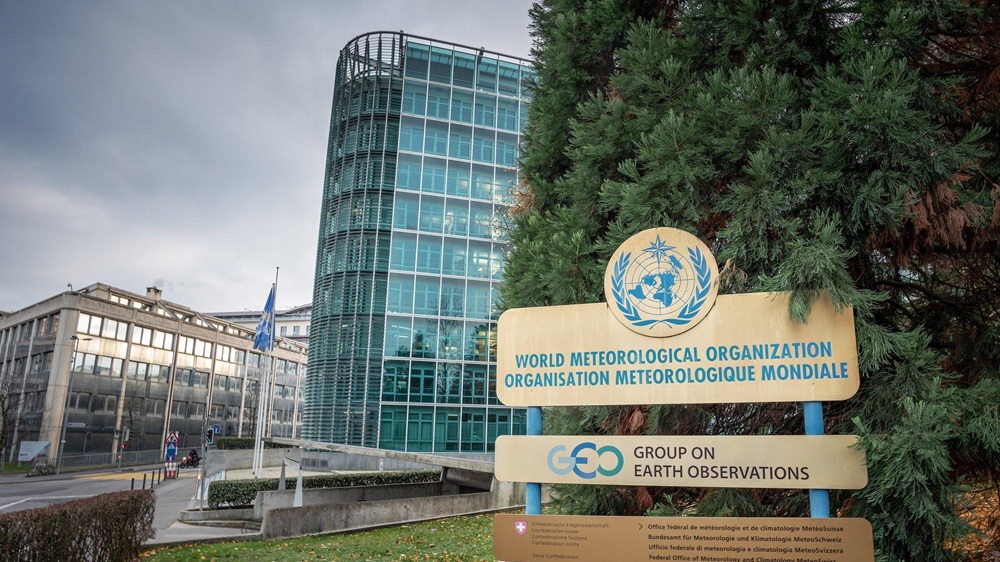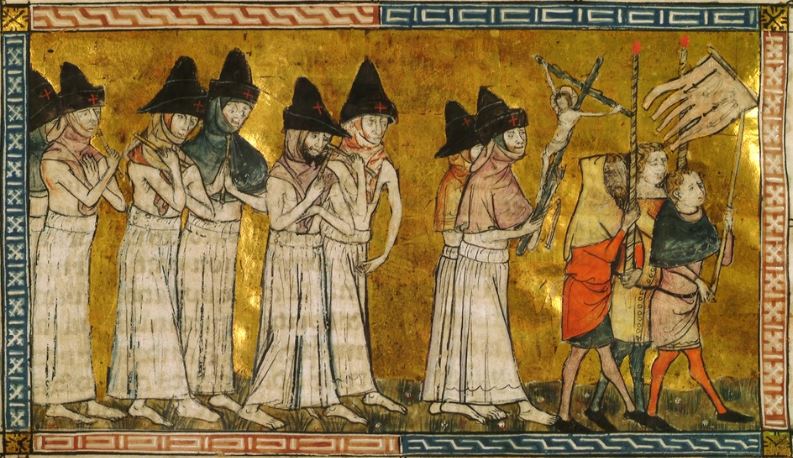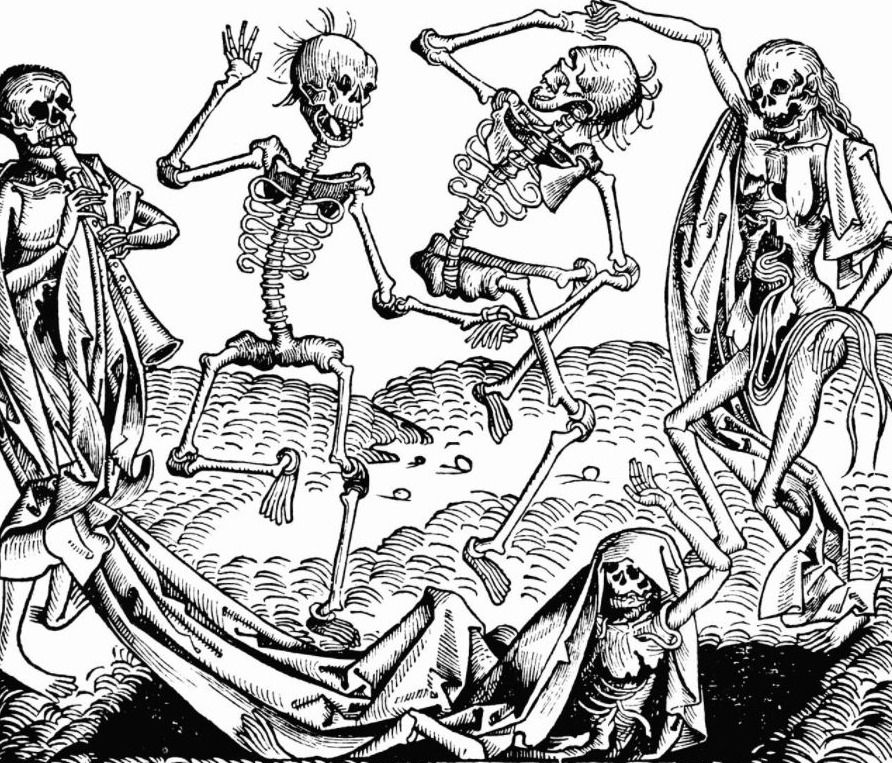
The IPCC's narrative that the climate is changing under the influence of humans is questionable. That is understated; they avoid any debate with critical scientists or any broadly supported social discussion, for that matter. Climate change is timeless, and because it is so elusive and amorphous, it is highly suitable as a compulsive social driver to make a lot of money and political gain.
By Ken van Ierlant
To combat this form of public deception, it is wise not to play the scientific but economic card because, on the one hand, the scientific matter is too volatile. On the other hand, the subject is irrationally driven by pedants and fearmongering, followed by greed and short-term political gain.
In 1632, Galileo Galilei understandably but naively played the scientific card in his “Dialogue Concerning the Two Chief World Systems.” The ecclesiastical court dismissed his thesis as contrary to the Bible and God's word and exiled, silenced, and placed him under house arrest.
Whether or not CO2 is responsible for a temperature increase is irrelevant. The measurements of the last 150 years are scientifically meaningless in light of the planet's 3.6 billion years of geological and climatological developments.
However, the consequences of the resulting energy transition can be much better analysed and discussed because it involves ignoring natural and economic laws over a very short period.
In that perspective, Niccolo Machiavelli's book ‘Il Principe’ describes human behavior to perfection. Machiavelli explained how power and greed, combined with... created widespread fears that led to mass hysteria and, after much misery, ultimately laid the foundation for reconsideration and renewal, such as the Renaissance.
Barbara Tuchman has described a similar phenomenon in her book “Distant mirror: the calamitous 14th century”, including the death cult and the rise of the flagellants, taken in tow and abused by the Catholic Church and the nobility.
So, it is timeless.
In the 14th century, we experienced the death cult because of the Hundred Years' War and climatic disasters that led to crop failures and famine. The bubonic plague that wiped out a quarter of the European population.
The flagellants marched en masse through the city and country in chastisement because of penance as part of religious madness. The Catholic Church was quick to enslave further and financially exploit the population, hand in hand with the feudal lords.

So now, too, flagellants are moving through cities and countries, with the difference that politicians, with the mass media as a horn, hand in hand with the large industrial complex, use these "useful idiots" to maximum advantage in their desire for power and wealth.
As an example of the current energy transition, introducing biofuels into the energy chain is a big gamble, morally irresponsible, and even financially catastrophic. The premise alone is that biofuels, for example, yield CO2 reduction as a core argument.
It is too simplistic and incorrect because the calculations do not include the entire chain. Only its positive outcomes are reminiscent of wishful thinking and the manipulation of DATA for one's benefit. IPCC has been caught several times for data manipulation and political intrigue. It is evident by now that there is no man-made climate emergency; it is a hoax.
The cocktail of politicians, climate activists, and the large industrial complex has created a monster of unprecedented size. But the good news is that the decline has begun. According to insiders, biofuels consist of waste materials such as frying fat and other biowaste materials supplemented with most biomass intended to feed humanity.

For example, in the discussion about biomass, in the form of wood chips as an alternative to gas and coal, burning waste wood in power stations turns out very differently in practice. Forests are being cut down on a large scale in distant places, shredded, and transported to our biomass incinerators based on a guilelessly chosen CO2 narrative that is rattling on all sides.
Sustainable Aviation Fuel
This also applies to the Sustainable Aviation Fuel-discussion (SAF). A flight from Paris to London can easily cost a pigsty of refined pork fat. There are as many as 100 of these flights per day... In other words, SAF production is feignedly ideal but practically unfeasible and expensive. It is profitable but bad for the environment and your wallet.
SAF is a revenue model that runs on subsidies from which Nestle and Shell, among others, earn a lot of money with a nicely presented narrative for the masses that it is good for the environment and reduces CO2.
We know that producing biofuels costs exponentially more regarding surface area, water, and fossil energy. Still, above all, it disrupts the global market for raw materials (commodity futures market). If corn and wheat are converted into fuel for flight, there is less left for the food chain. So, many ancient forests are being cut down to increase production.
Poor countries must purchase raw materials from the same market to feed their population. If BIO fuels, price is (x3), are bought en masse, this will lead to ECOCIDE, subsequently to poverty, migration, social unrest, and war, so GENOCIDE.
The good news, just like with the subsidized energy transition, is that the model is broken, unaffordable, and unfeasible. Shell halts construction of SAF production...
The fairy tale of flying on frying fat is just as shaky as the business model of biomass pellets, wind, solar energy, the production of electric cars, and electrification. It is just a business model for the large industrial complex subsidised by the citizens fooled by climate stories.
This also applies to the other forms of the energy transition, such as wind fields and solar meadows, the euphoric promises of hydrogen gas, and the glory of society's electrification.
Suppose the entire chain is calculated from the exploration of raw materials to the exploitation and degradation of the end products. In that case, the economic and environmental business case is highly damaging and disastrous.
Subsidies
The entire energy transition is based on subsidies. Subsidies are like a new financial model where banks provide loans guaranteed by governments. They have devoured billions on pointless projects, impoverished, polarised the population, and destroyed the economy.
Prof. Dr. Hans Werner Sinn, Germany's most influential economist, has made mincemeat of all the German government's energy transition plans, which will unequivocally lead to Germany's downfall as an industrial country, in his annual review of Germany's economy, “Eine energy wende is nichts.”
Nevertheless, the flagellants continue to march through town and country in the form of activists such as Extinction Rebellion, green politicians, the IPCC, and other WEF politicians to continue to spread hell and damnation on humanity.
But here, too, there is good news; the departments of the primary industry giants that focus on green energy all make a loss. Rising inflation and interest rates, including broad social resistance from the masses against this hysteria, are bringing many projects to a standstill.
Rethinking this madness will ultimately lead to, among other things, a nuclear renaissance and a better and more sustainable organisation of our society that is also economically feasible to restore prosperity and well-being.






